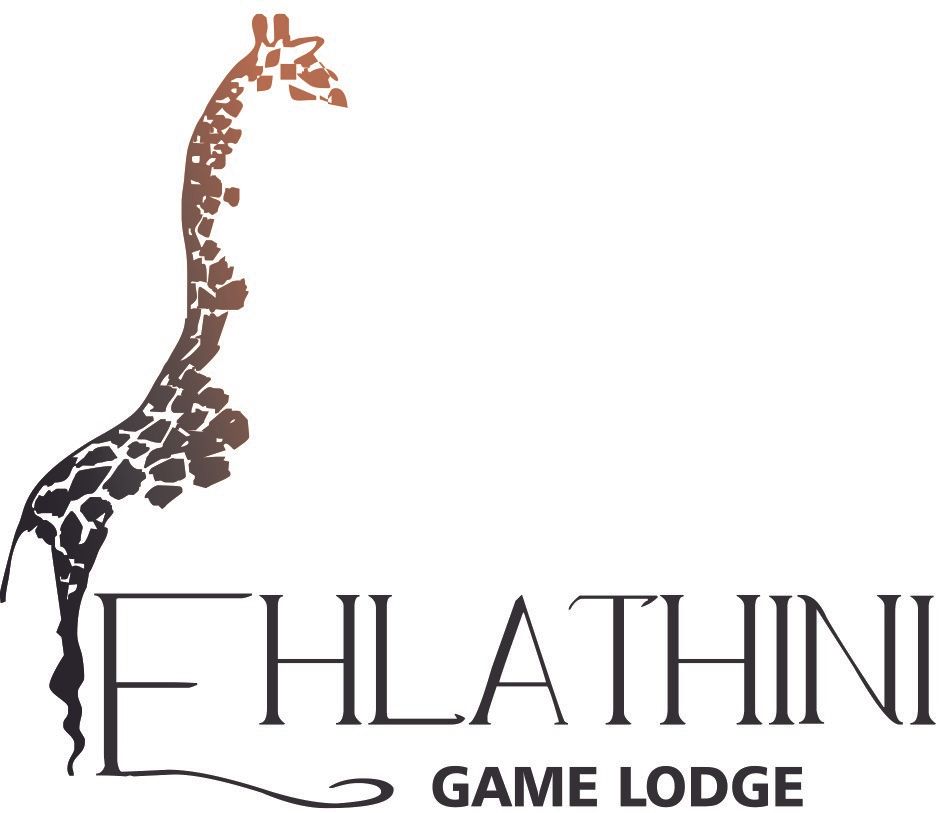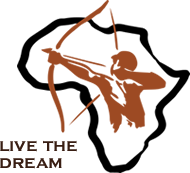FAQ'S
-
What about Transport?
We provide transportation both to and from the airport to our lodge at additional cost. We will handle all transportation needs during your stay at Ehlathini Game Lodge.
-
What is the accommodation like?
Our rooms and chalets are constructed using local rocks, giving them a sturdy, permanent structure. The thatch roof adds to the authentic African atmosphere, creating a cozy and inviting ambiance.
Each Room and Chalet has either a king or queen size bed and two of our rooms have at least one twin size bed to accommodate children. Each Room and Chalet have en suite bathrooms that feature hot and cold running water, a shower, and flush toilets. We provide all bedding, towels, and bath soap for your comfort and convenience. We also have air conditioning in the Chalets and the Leopard Room.
Our lodge also features three "bomas," which are seating areas under the stars around a campfire, perfect for relaxing and socializing in the evenings and braai style dinners.
-
How must ammunition be transported?
To comply with regulations, all ammunition must be packed and transported in a lockable ammo box, which should be placed within your checked luggage. It's important to note that a manufacturer's carton is no longer considered sufficient. Additionally, there's a limit of five kilograms (11 lb) of ammo per passenger, which includes the weight of the ammo box. Don't forget to declare your ammo at check-in.
You have the option to bring your own rifle, following the appropriate firearm import procedures and documentation, or rent a rifle from us at a daily rate of US $25.
When it comes to recommended calibers, for small to medium game, we suggest a minimum caliber of .243 Win. Calibers such as .270, .308, and any of the .300 magnum calibers are excellent all-rounders. For dangerous game, we recommend a minimum of .375 H&H with well-constructed bullets.
Expect bushveld shots to range between 20 and 150 yards, usually through bushes. Highveld shots, on the other hand, will be on the open plains of the Free State and can range from 50 to 300 yards.
-
How to import my firearm?
Renting a rifle from us is a hassle-free option at just US$ 25. Simply inform us in advance, and we will arrange it for you. However, if you prefer to bring your own rifle, please refer to the firearm import instructions on our website.
You will also need to obtain a manufacturer's or police letter to verify the ownership of your rifle. It is essential to have this letter stamped when going through US customs. For further details, visit www.phasa.co.za, and don't forget to check with your airline.
-
Best shot placement on African animals?
We suggest purchasing the book "The Perfect Shot: Mini Edition for Africa" by Kevin Robertson, available at Cabelas, Outdoor Warehouse, Sportsmans Warehouse, Bass Pro Shop, or online through Safari Press. In addition to North American animals, it provides guidance on shooting African animals on the shoulder when taking a broadside shot, and on the opposite front leg when quartering away. Your Professional Hunter will also review this information before the hunt.
-
Bow set up?
Bow setup for Women and Children
38 pounds and up
380 grain arrow with a well-constructed two-blade broadhead like a kudu point or iron will broadhead.
Bow and arrow setup for Plains game.
Any 400 grain arrows.
A well-constructed fixed blade or mechanical broadhead will suffice. Make sure your bow is tuned with this setup.
Big game bow and arrow including giraffe & buffalo etc.
A 720grain + arrow with a minimum of 70 pounds draw weight.
Use a fixed blade broadhead like iron will, kudu, or Alaskan
-
Explain bow hunting/blinds shot distance?
When it comes to bow hunting, there are two main methods used: hunting from permanent blinds or pop-up blinds and walk-and-stalk hunting. If you choose to hunt from a blind, your shot will typically be set up between 15-30 yards.
Our blinds offer enough space for at least two people and are suitable for video recording. This is a great option for first-time hunters or those who prefer a more stationary approach. However, if you prefer to stalk your prey, you must be able to shoot accurately up to 60 yards. We recommend bringing full camouflage clothing, including a ghillie suit, scent-blocking gear, and sturdy walking boots.
-
Where are the hunting areas?
Different species of animals are found in specific areas. The Bushveld (Ehalthini Game Lodge is located in the Bushveld) and the Highveld are the primary hunting areas for plains game, with big game hunts available in other parts of South Africa upon request. The Bushveld is suitable for both bow and rifle hunting, while the Highveld is best for rifle hunting.
The Bushveld:
The Bushveld is located in the Limpopo province, around a 3-4 hour drive north of Johannesburg airport and close to the Botswana border. This area is characterized by warm and dry weather, grasslands filled with acacia trees, and thorn bushes. The Bushveld is around 2000ft above sea level, and it is a great area for both bow and rifle hunting.
The Highveld:
The Highveld is located in the Free State and is around 2.5-3 hours' drive South, South-East from the airport. The area has cooler weather than the Bushveld and is characterized by open grass plains with high mountains. It is best suited for rifle hunting, and the altitude here ranges between 4000-6000ft above sea level.
-
What about Taxidermy?
After we’ve taken care of all the caping and field prep of your trophies, we’ll deliver them to a taxidermist of your choice. We highly recommend using the services of one of the taxidermists that we work with in South Africa. These taxidermists are renowned for their expertise in South African animal taxidermy. But you are free to use any taxidermist that you prefer. If you prefer, we can also arrange for your trophies to be dipped and shipped, so that you can have them mounted by your preferred taxidermist in the US.
Please note that taxidermy work is not included in any of our pricing and is completely optional.
-
Payment for hunt
Update coming soon.
Gratuities are at your own discretion;, we recommend a minimum of $50 (or $10 per day) - for our chef, housekeeper and groundkeepers as well as our skinners and trackers. We recommend that you tip your PH 10% of your bill, but once again, this is at your own discretion.
A small cash amount is handy for curio shopping, but most shops accept credit cards.
-
What will we eat and drink
Good food! Home cooking at its best. Nothing weird or funky. We do serve some of the venison too, which is delicious. Served with some of SA finest wines – a dining experience second to none!
Please inform us of any food allergies or special dietary requirements in advance, so we can accommodate your needs.
-
What about electricity?
South Africa's electricity operates at 220 volts, which differs from the 110 volts used in the United States. To ensure that your US electronic devices can be charged during your stay, we have adapter plugs available to convert the plugs to the South African standard. However, please note that hairdryers must be compatible with 220 volts.
-
What about Passports and Inoculations?
To enter South Africa, a valid passport is required, except for those coming from Mexico who need a visa. While no vaccinations are mandatory, it is recommended to take Malaria prophylactics when hunting certain areas such as Zululand or the Lowveld, or when visiting Kruger Park. It's best to consult with your doctor to get proper medical advice.
It's also advisable to pack a small personal/general medicine kit, although we do have a first aid box in camp, and there are excellent private hospitals and doctors in town. Make sure to check with your medical insurance provider in advance to know your coverage options.
-
How to get started?
To finalize your hunting trip, follow these steps:
- Secure your booking with a non-refundable deposit.
- Book your airline ticket.
- If applicable, complete your firearm import documents.
- Purchase "The Perfect Shot: Mini Edition for Africa" by Kevin Robertson Safari Press, which is available at Cabelas, Outdoor Warehouse, Sportsmans Warehouse, or Bass Pro Shop.
- Practice shooting.
- Notify your bank and insurance company of your upcoming trip.
- Submit your booking contract and indemnity form to us.
Temperature / Hunting Season / Full Moon
As we are in the southern Hemisphere exactly on the Tropic of Capricorn, our fall/autumn is in April/May, our winter is in June/July/Aug and spring in Sept/Oct and summer in Nov/Dec/Jan/Feb/March.
We hunt throughout the year, but our main hunting season starts in March and ends in October. Fall/winter mornings can be cold (35-50°F) and the daytime temperatures will usually be warm(ish) at 70-80°F. Rain is unusual for these months and days are generally sunny and cloudless.
Summers are generally hot with temperatures soaring to 110°F at times. Average summer temperatures are about 85 -90°F. Our “rainy” season is in spring/summer (Oct-March).

